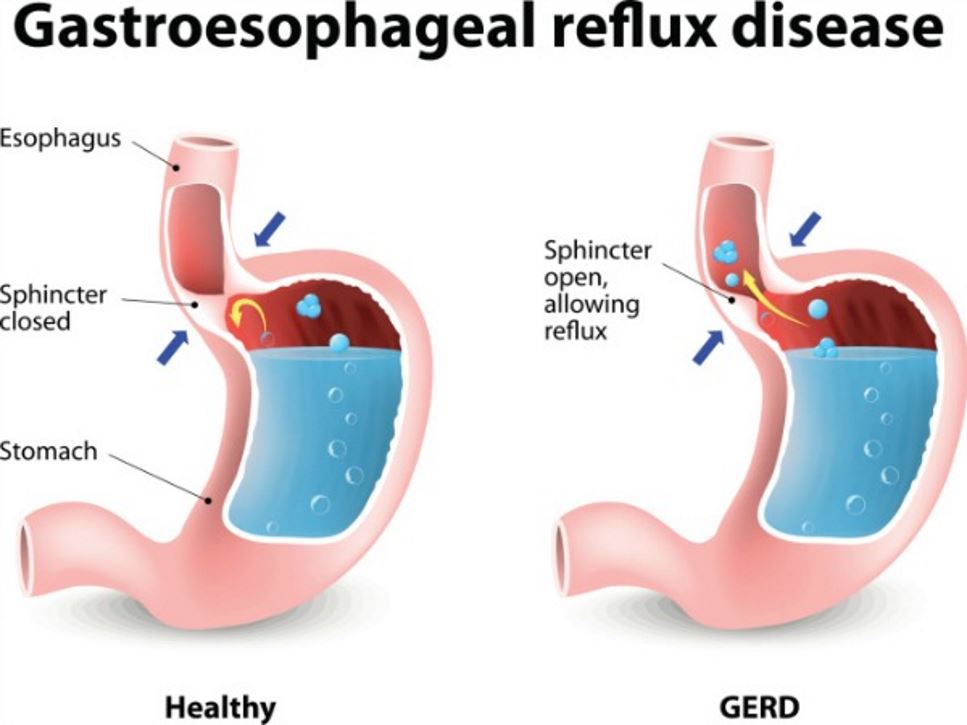Many people have a passing case of indigestion from time to time. But when it occurs frequently, it could be indicative of a more serious condition called gastroesophageal reflux disease, or GERD.
What is GERD?
GERD is a digestive disorder in which stomach acids, food and fluids flow back into the esophagus. It can occur at any age and may be temporary or a long-term issue. The danger of untreated GERD is that it can cause health problems such as inflammation of the esophagus, which is a risk factor for esophageal cancer. It also may lead to respiratory problems such as asthma, fluid in the lungs, chest congestion, as well as damaging teeth.
Recognizing the Symptoms
Heartburn is the most common symptom, but not everyone experiences this. People with GERD also may experience chronic coughing, chest pain, nausea or vomiting. Speak with your doctor or health care team if you have persistent vomiting or difficulty swallowing.
Diagnosis and Treatment
Your doctor may assess if you have GERD based on your symptoms and medical history. Other times, further testing is necessary, and you will be referred to a gastroenterologist. Testing might include an endoscopy — a nonsurgical procedure during which a flexible tube passes through your GI tract to take pictures and can take tissue samples — may be ordered. An instrument called a pH probe may also be used to help track the flow of acid in your stomach.
Medication may be necessary if you have tried everything and nothing works. Lifestyle changes that may help alleviate the problem without medicine include quitting smoking, losing weight, wearing loose-fitting clothing, staying upright for a few hours after meals and sleeping with the head of the bed elevated.
Nutrition and Prevention
Knowing what and when to eat can go a long way in preventing bothersome GERD flare-ups. One significant culprit that can cause symptoms is fatty food. Try to choose lean meats, poultry, fish, tofu and beans as protein sources. Limit the amount of added butter and oil in your meals. Opt for baked dishes instead of fried foods. Pastries can be hidden sources of fat. Low-fat dairy is a great source of calcium and vitamin D that also may help prevent GERD symptoms when substituted for full-fat options.
Certain foods and ingredients may worsen GERD symptoms. Mint, chocolate, alcohol, caffeine, acidic foods and spicy foods may trigger a flare-up.
The timing and amount of food consumed also can make a difference in how you feel. Avoid large meals and opt instead for smaller, more frequent meals throughout the day.
Although we know the general triggers that can make GERD worse, customizing a lifestyle that works best for you can take some time. Try keeping a log of what you eat and drink throughout the day. Note when symptoms seem to flare up and review your log over time to identify patterns. Stay in contact with your doctor and a registered dietitian nutritionist so they can help guide you to the best prevention and treatment strategies.
Find a Nutrition Expert
Looking for credible nutrition information and recommendations? The Academy of Nutrition and Dietetics' network of credentialed food and nutrition practitioners are ready to help!

